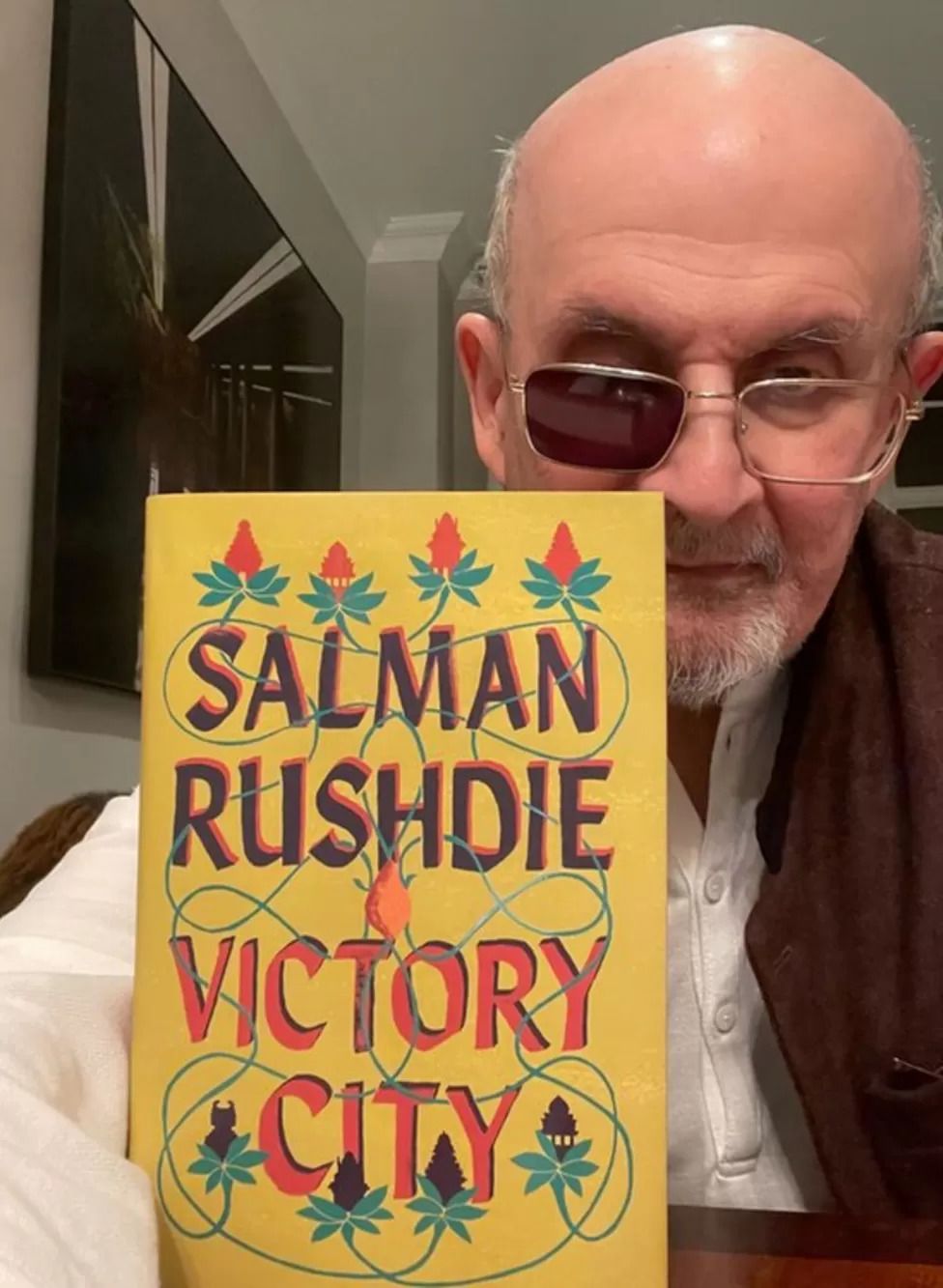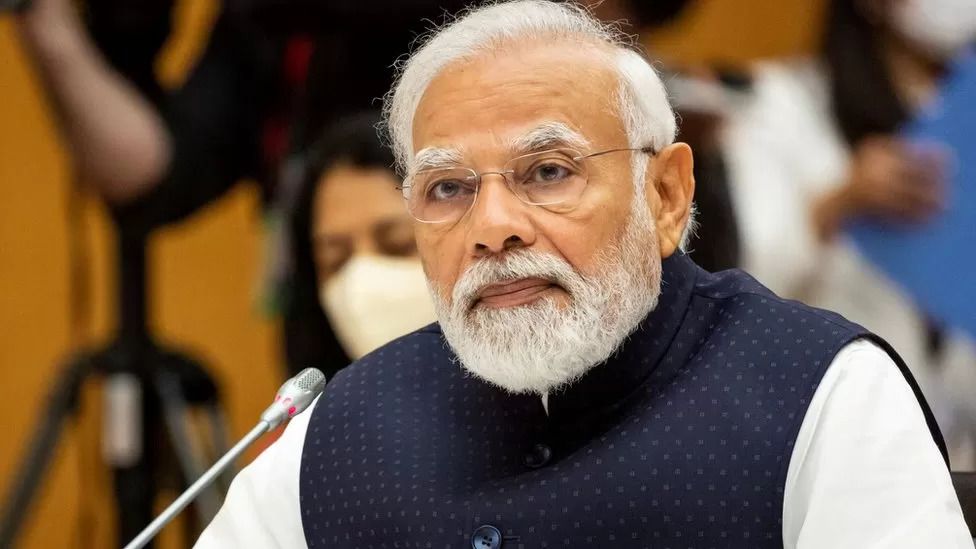
Sir Salman Rushdie speaks for the first time about 'colossal attack'
In an interview with The New Yorker, Sir Salman said he was "lucky... my main overwhelming feeling is gratitude".
The award-winning novelist was attacked on stage ahead of a speech in August and spent six weeks in hospital.
He subsequently lost vision in one eye. Sir Salman has long faced death threats for his 1988 novel The Satanic Verses.
In a wide-ranging interview with David Remnick, the novelist said: "I've been better. But, considering what happened, I'm not so bad.
"The big injuries are healed, essentially. I have feeling in my thumb and index finger and in the bottom half of the palm. I'm doing a lot of hand therapy, and I'm told that I'm doing very well."
But he said it was difficult to type and to write due to a lack of feeling in some of his fingertips.
 Victory City is about a nine-year-old girl who has a divine encounter that will change the course of history
Victory City is about a nine-year-old girl who has a divine encounter that will change the course of historyHe said he also has mental scars from the attack and that he is having to rethink his approach to security, having lived without it for more than two decades.
"There is such a thing as PTSD, you know," he said. "I've found it very, very difficult to write. I sit down to write, and nothing happens. I write, but it's a combination of blankness and junk, stuff that I write and that I delete the next day. I'm not out of that forest yet, really."
The man suspected of stabbing Sir Salman, Hadi Matar, has been charged with attempted murder.
Sir Salman was forced into hiding for nearly 10 years after The Satanic Verses was published in 1988.
Many Muslims reacted with fury to it, arguing that the portrayal of the Prophet Muhammad insulted their faith.
He faced death threats and the then-Iranian leader, Ayatollah Ruhollah Khomeini, issued a fatwa - or decree - calling for Sir Salman's assassination, placing a $3m (£2.5m) bounty on the author's head.
The fatwa remains active, and although Iran's government has distanced itself from Mr Khomeini's decree, a quasi-official Iranian religious foundation added a further $500,000 (£416,000) to the reward in 2012.
Remnick asked Sir Salman if he thinks he should have been more on guard after moving to New York in 2000, having previously lived underground for several years.
"Well, I'm asking myself that question, and I don't know the answer to it," he said. "I did have more than 20 years of life. So, is that a mistake? Also, I wrote a lot of books."
Rushdie's latest novel, Victory City was finished just before the attack and is being published later this week.
"I've always tried very hard not to adopt the role of a victim," he said. "Then you're just sitting there saying, 'somebody stuck a knife in me! Poor me'... Which I do sometimes think!"
"But what I don't think is: That's what I want people reading the book to think. I want them to be captured by the tale, to be carried away."
Rushdie is aware Victory City will have to compete with his recent real-life drama.
"I'm hoping that to some degree it might change the subject. I've always thought that my books are more interesting than my life," he said. "Unfortunately, the world appears to disagree."
He talks about how the book, set in 14th Century southern India, can be read as an allegory about the abuse of power and the curse of sectarianism.
Sir Salman is critical of the country's current prime minister, Narendra Modi.
 Indian prime minister Narendra Modi's ideology of strident Hindu
nationalism, combined with promises of economic development, remains a
big draw with voters
Indian prime minister Narendra Modi's ideology of strident Hindu
nationalism, combined with promises of economic development, remains a
big draw with voters
"The Modi government is very popular. It has huge support. And that makes it possible for them to get away with everything… to create this very autocratic state, which is unkind of minorities. Which is fantastically oppressive of journalists. Where people are very afraid.
"It's getting difficult to call it a democracy."










